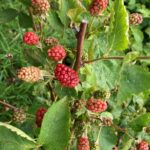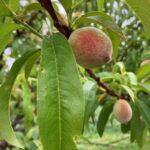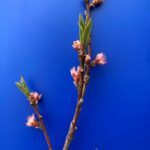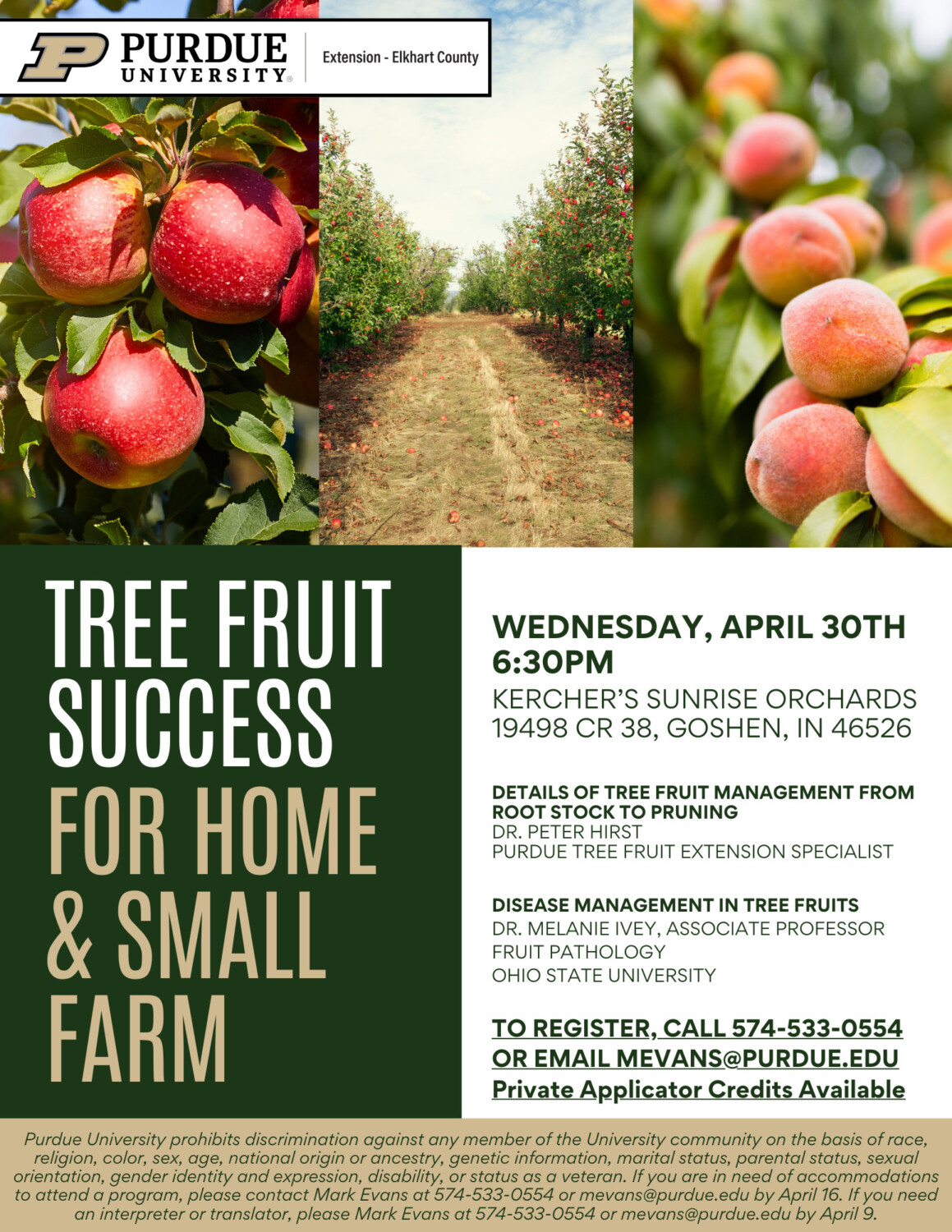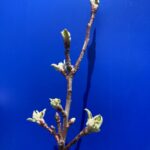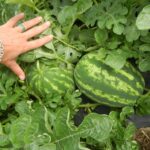Recent cooler weather has provided relief from July. Despite optimum conditions for fungal and bacterial disease, fireblight pressure has fortunately waned as August progresses. Japanese Beetle numbers have also dropped off dramatically after a second insecticide applied in the second week of July. Blackberries continue to ripen, and will be joined by peaches, plums, early[Read More…]
Stone Fruits
Hi. As I’m sure most of you have noticed, the Japanese Beetles have arrived. We have been dealing with them in every fruit crop with the exception of our apples. The blackberries are currently being consumed by them despite a well-timed spray last week. Fire blight continues to show up in our orchard. We are[Read More…]
Hi! Small fruits are beginning to ripen here. Raspberries are in full swing, our earliest blackberries have 1 or 2 ripe fruit, and a few plums are ready. Pest wise, we have been seeing damage from moth larva on a few of our plums. Things are going well otherwise. We are continuing to remove trees[Read More…]
Hello! It’s been a wet and cool couple of weeks. Sprays in both the orchard and vineyard have been pushed back because of this and our limited time frame for planting vegetable crops. Hopefully we can get back on schedule this week. It has been ideal weather conditions for some fungal pathogens, so we will[Read More…]
Hello! This is our third crop conditions update this season. The fruit trees are progressing well as things get up and going around the farm. Most everything has passed 1 or more stages of growth since the third week of this month. Monday the 28th marked our first fungicide application in the vineyard, with the[Read More…]
Welcome to Spring! Things have begun to green up here at Meigs as we’ve had some warmer weather and plenty of rain. Consequently, this week has been a push to make our first-of-season herbicide and fungicide applications in the orchard. Though we breached 80F a couple times already, our fruit trees and brambles do not[Read More…]
What a wet July we have had so far.. and summer for that matter! The timing and amount of rain has made it difficult to complete cover sprays in a timely manner. Even with all of this rain and limited spray windows, all of our fruit crops have remained disease free. Our peaches and blackberries[Read More…]
Here at the Meigs Horticulture Facility in Lafayette, Indiana we couldn’t ask for better crop conditions. We have been receiving good amounts of rain as needed for fruit maturation, without experiencing any flooding. The Japanese beetles seem to be our biggest issue right now across the board. Still no disease pressure to report, we will[Read More…]


